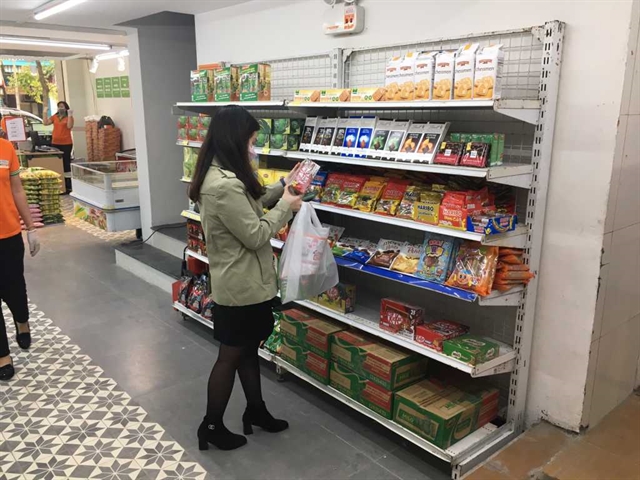Capital city-based businesses on Thursday asked for specific tax policies from local authorities as they struggle with the economic downtrend caused by COVID-19.

Capital city-based businesses on Thursday asked for specific tax policies from local authorities as they struggle with the economic downturn caused by COVID-19.
BRG Group Chairwoman Nguyen Thi Nga said the Government recently approved extension of tax payment and land lease dues, but many tax officials were not fully aware of the principle and there were also no instructions.
She was speaking at a meeting between businesses and the Ha Noi Party Committee.
The pandemic was forecast to have a prolonged impact on the business community and the Government’s efforts may be not enough to help enterprises stand against the economic slowdown, she said.
The validity of policies, which is five to six months, may be too short for companies to enjoy, she said, adding those policies should be extended and stronger support be delivered for local firms.
Nga proposed the Ministry of Planning and Industry cut tax rates by up to 50 per cent for businesses and allow them employ workers from other localities to work on construction sites.
The CEO of Vietnam Airlines said it may take at least five years for aviation firms to recover and cover the loss made during the coronavirus outbreak.
Duong Tri Thanh said tax incentives, including tax cuts and loan rescheduling, would benefit local firms. Meanwhile, the company also asked for financial assistance from the State budget for its employees.
Similar recommendations were also given by conglomerate Vingroup as its core businesses such as automobile, real estate and education were being hit hard by the pandemic.
Secretary of Ha Noi Party Committee Vuong Dinh Hue told participants that the city was willing to help enterprises with land clearance, project planning and administrative procedure so that investment projects were carried out properly, thus propelling the city’s growth.
The city would also give stronger support for medium- and small-sized enterprises (SMEs), promote the use of electronic administration systems and encourage start-up businesses to grow, Hue said.
The city authorities would hasten the implementation of the Government’s policies so that those hit by COVID-19 were able to recover and continue operating, he said.
Hue said COVID-19 had strong negative effects on the global economy, but the damages were not measurable. In the first quarter, Viet Nam’s GDP growth rate remained comparatively high in the world but the figure was half of last year’s Q1. Economic performance was forecast to keep struggling in the second quarter.
According to the Ha Noi People’s Committee, growth indicators were lower than the year before due to the pandemic. Total gross domestic product (GDP) increased by 3.72 per cent, industrial index was up 4.44 per cent, the services sector rose 7.4 per cent, the retail sector added 2.3 per cent, and total public investment was up 5.2 per cent to VND63 trillion (US$2.68 billion).
In the first three months of the year, 6,350 new firms have opened for business. That raised the total number of companies in the capital city to more than 285,300 as of March 31.
More than 4,200 companies had to shut down in the January-March due to the COVID-19. The figure was up 36 per cent on-year.
Export turnover was down 18.1 per cent year-on-year to $2.7 billion, and import turnover fell 21.3 per cent to $5.8 billion compared to the same period in 2019. — VNS





